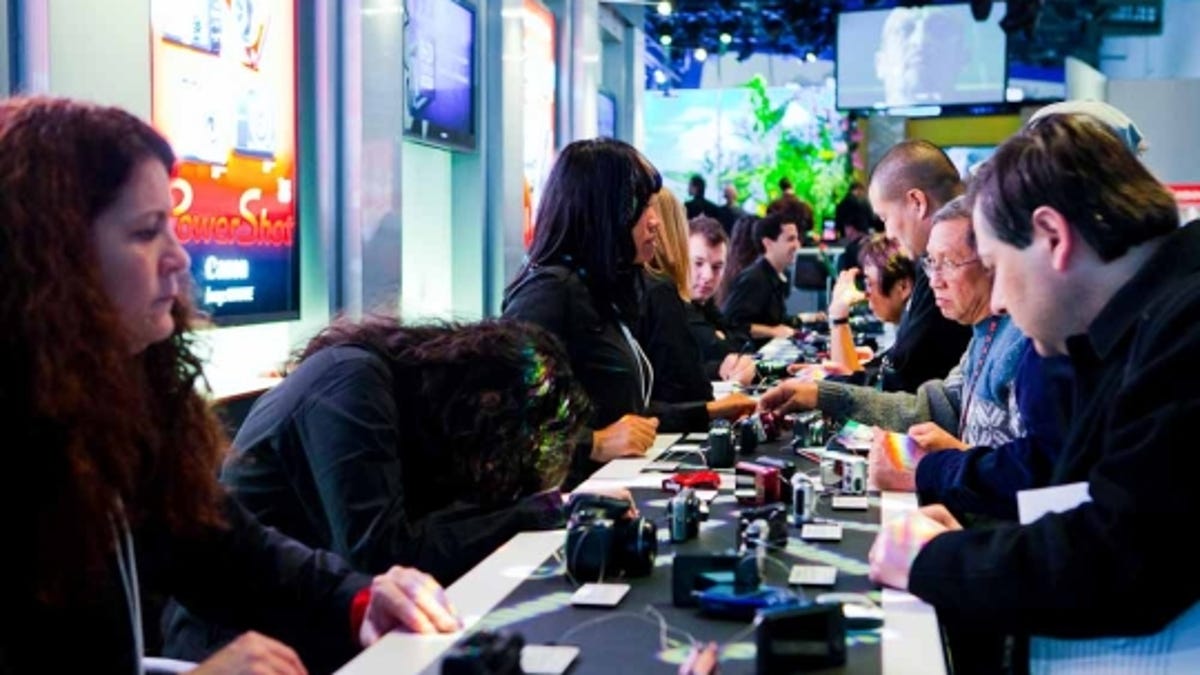 Why You Can Trust CNET
Why You Can Trust CNET CES: Optimism back as economic worries fade
Two years after a worldwide financial crisis put a cloud over CES with little appetite for consumer electronics gear, it looks like the worst is in the past.

LAS VEGAS--Few tech industry professionals truly relish the annual trip here each January for the ritual that has become CES, the largest and most important event on the tech calendar. But this year, for the first time in awhile, they were able to get back to complaining about long cab lines and bad food rather than layoffs and budget cuts during their week in the desert.
"Double the energy and enthusiasm at CES compared with last two years," said NPD Group analyst Samir Bhavnani on his Twitter account Friday, summing up a week that lacked a signature announcement or theme but was reflective of an industry that has stopped freaking out about the state of the economy and started getting back to its usual mix of optimism and frantic product development.
Over 140,000 people attended CES, up significantly from last year's total of just under 120,000 and around the totals reached in January 2008, just before the economy started to crumble. Attendance at keynote discussions and panels was standing-room only in many cases, with hour-long waits for major speeches common and people packed four deep at the door to the room where CNET's Next Big Thing Supersession was held.
While the flashy booths of the convention center floor get a lot of attention, a fair amount of CES attendees never even see the inside of the building, picking up their badges when they arrive and immediately shuttling back and forth between various meetings, dinners, and parties at hotels around the city.
Cab drivers--the unofficial source of everything business-related in Vegas for years--reported insane traffic that made the last two conventions look empty.
One driver heading into the madness Tuesday night expressed hope that people would actually show up this year, as opposed to the past two years when attendance fell below expectations. That turned out not to be an issue, as 20,000 more people attended than were expected, a number not that far from the total number of conventioneers scheduled to visit Las Vegas this week for various events.
Las Vegas could use that extra cash. While the tech industry might be feeling better about itself these days, things are still grim in Vegas, one of the epicenters of the housing boom and bust cycle over the past few years. Unemployment in the Las Vegas area right now is 14.3 percent according to the Bureau of Labor Statistics, well above the national average of 9.4 percent and Silicon Valley's 11 percent, and as one of the biggest conferences on the Vegas calendar (especially when combined with the porn industry's overlapping conference over the weekend) CES has a profound local economic impact.
In remarks before Verizon CEO Ivan Seidenberg's keynote address Thursday, CEA President Gary Shapiro commented that the health of the U.S. economy is arguably the biggest long-term factor in the performance of the consumer electronics industry. Shapiro (in between plugs for his new book, "The Comeback") acknowledged that the U.S. economy still faces a lot of challenges but each year in January CES serves as "our rejunvenation, our statement to the world that the future is bright and full of innovation."
While boosters like Shapiro prefer to talk about innovation, what really drives CES is networking: the chance for product managers, journalists, executives, salespeople, and the average Joe to mix and mingle in cab lines and nightclubs to share thoughts, business cards, and hangover remedies. Judging by the flood of Twitter commentary, the parties and chances for informal contact with business associates mattered almost as much as the show itself, which is also a sign that corporate expense accounts are perhaps a little looser than in years past.
With apologies to Shapiro, you can't call it a comeback until the numbers come in, and with a flood of earnings reports about to hit over the next few weeks, we'll get to see whether that optimism is actually coming through to the bottom line. There's still a long way to go before anyone can feel truly comfortable, with Gartner predicting just a 5.1 percent rise in tech spending this year and plenty of uncertainty among consumers.
For now, however, the best sign that the tech industry is feeling better about the economy is that nobody was really talking about the economy. One panel moderated by Shapiro on Friday focused on long-term threats to the U.S. economy and structural issues that need to be addressed, but it was a high-minded philosophical discussion about trade and immigration policies.
Everywhere else, it was all about the products. Crowded cab lines are a small price to pay for a healthier business outlook.